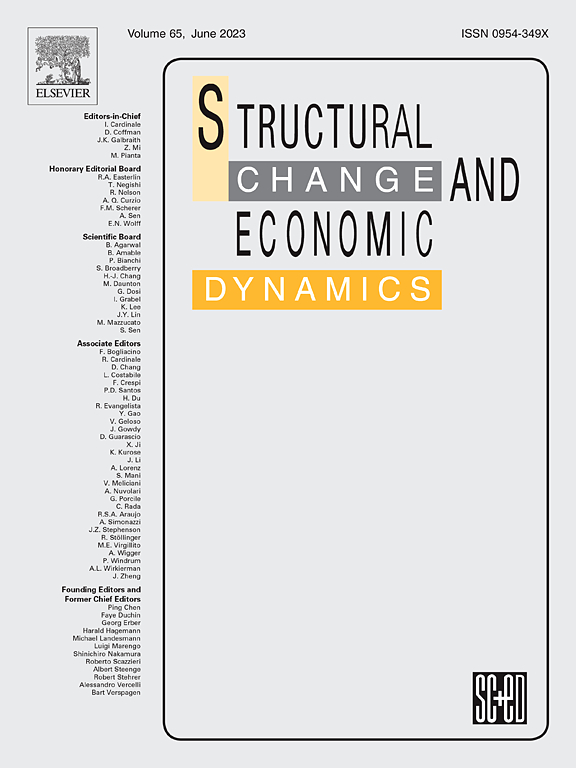Unequal impacts of temperature deviations on poverty:International Evidence
IF 5.5
2区 经济学
Q1 ECONOMICS
引用次数: 0
Abstract
Climate damages increase with the rising frequency and intensity of extreme weather events. Meanwhile, accumulation of temperature deviations also poses serious concerns because of its tremendous and divergent impacts on agricultural system, urbanization and socioeconomic conditions of the vulnerable population. We investigate how deviations from comfortable temperature ranges influence national poverty rates across 102 countries from 1987 to 2020. Using an innovative temperature deviation index and a panel dataset, we find a negative association between temperature deviation and national poverty rate, significant only in cooler regions. Agricultural output and urbanization account for 24 % and 29 % of this effect, respectively. Projections suggest the global poverty rate may decrease to 15.66 %-16.21 % by 2060, despite environmental stress. Our findings challenge the notion that climate change uniformly exacerbates poverty, highlighting the need for tailored adaptation strategies and policies that consider both risks and potential benefits of changing temperature patterns.
温度偏差对贫困的不平等影响:国际证据
气候灾害随着极端天气事件发生频率和强度的增加而增加。与此同时,温度偏差积累对农业系统、城市化和弱势群体社会经济状况的影响巨大且存在差异,也引起了人们的严重关注。我们调查了从1987年到2020年102个国家的舒适温度范围的偏差如何影响国家贫困率。使用创新的温度偏差指数和面板数据集,我们发现温度偏差与国家贫困率之间存在负相关关系,仅在较冷的地区显著。农业产出和城市化分别占这一影响的24%和29%。预测显示,尽管面临环境压力,到2060年,全球贫困率可能降至15.66% - 16.21%。我们的研究结果挑战了气候变化统一加剧贫困的观念,强调需要有针对性的适应战略和政策,考虑到温度模式变化的风险和潜在利益。
本文章由计算机程序翻译,如有差异,请以英文原文为准。
求助全文
约1分钟内获得全文
求助全文
来源期刊

Structural Change and Economic Dynamics
ECONOMICS-
CiteScore
9.60
自引率
4.90%
发文量
159
期刊介绍:
Structural Change and Economic Dynamics publishes articles about theoretical, applied and methodological aspects of structural change in economic systems. The journal publishes work analysing dynamics and structural breaks in economic, technological, behavioural and institutional patterns.
 求助内容:
求助内容: 应助结果提醒方式:
应助结果提醒方式:


